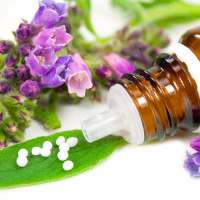FDA Considers Limits on Unregulated Homeopathic Drugs

After decades of allowing the $2.9 billion homeopathic treatment industry to operate without regulation, the Food and Drug Administration has begun to consider imposing greater limits on products marketed as “homeopathic.” Up until now, companies have been allowed to market products claiming to relieve pain, sleeplessness, lack of focus, or any number of other ailments, marketing them as homeopathic remedies, although these products have not been tested by the FDA for safety or effectiveness. Traditional medicines are not permitted to make such claims without examination and testing by the FDA. However, in 1988, when homeopathic remedies first gained modern popularity, the FDA decided to allow these companies to self-regulate. The agency extended this self-regulation exception to companies that manufacture products composed of substances listed in the Homeopathic Pharmacopoeia, a database maintained by a nonprofit group and in existence since the 1800s. Certain limits do exist on their manufacturing conditions, and over-the-counter homeopathic remedies can only be marketed for so-called “self-limiting” conditions, which are expected to go away on their own, such as a common cold.
The growth of the homeopathic remedy industry has brought with it an increase in concerns over the safety of such remedies. Since 2009, the FDA has issued almost 40 warning notices to homeopathic manufacturers and mandated three complete recalls. One such product, Hyland’s Teething Tablets, was a product marketed as a remedy for symptoms of teething in infants and children. The product contained potentially toxic levels of Belladonna, or Deadly Nightshade, a substance often used as a poison. Additionally, the product was sold without child-safety measures on the pill bottle, leaving open the possibility that a child would take more of the pills than recommended. The FDA also recalled a drug which caused a loss of users’ sense of smell, either temporarily or permanently.
The rationale behind homeopathy was developed as far back as the 1700s. Practitioners believe that ingesting an almost-undetectably small amount of a substance that causes a physical malady can also cure that malady. Centuries of subsequent scientific evaluation since that time have not supported this theory. Nonetheless, support for such remedies has grown in recent years, with the Centers for Disease Control estimating that some 3.3 million Americans purchased homeopathic remedies in 2007.




